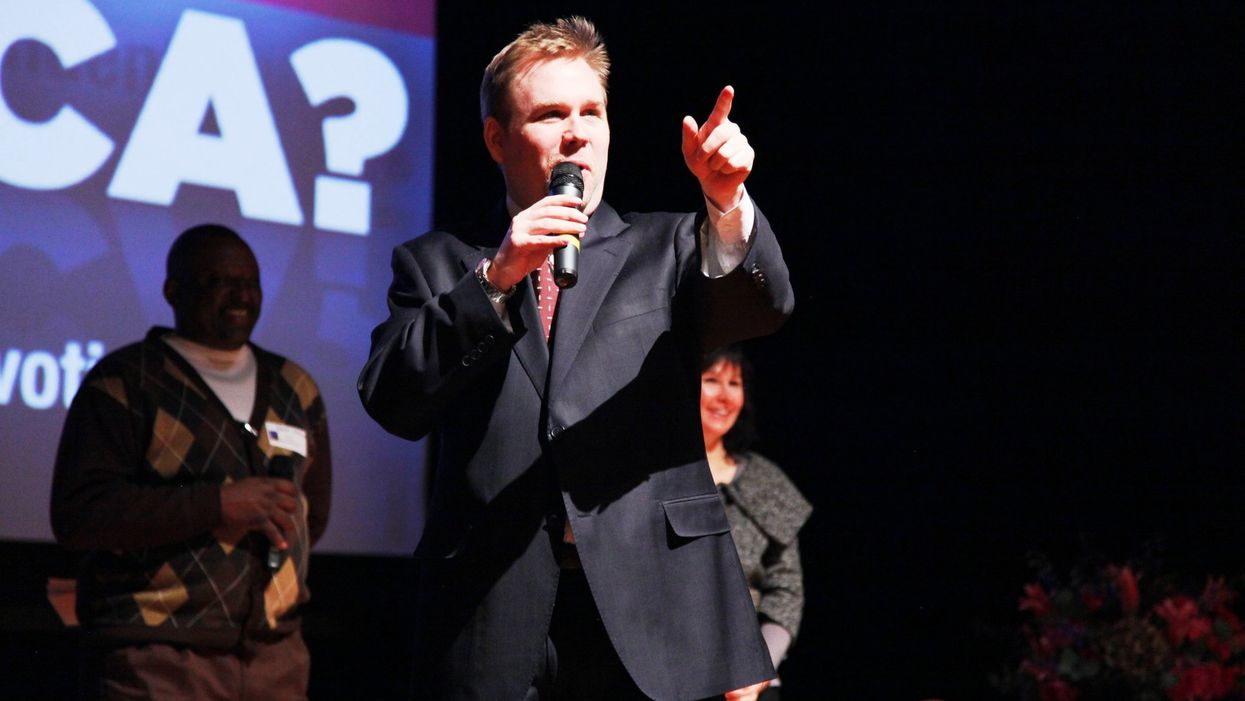After six years as president of Open Primaries, John Opdyke is a few months from the biggest test of strength in the group's history: Floridians will vote in November on a referendum to permit all voters (including 3.7 million not registered as Republican or Democrat) to participate in state primaries — which proponents see as transformative for promoting more consensus-building candidates and breaking the two-party hold on almost all political power. Opdycke's career has been spent helping outsiders compete in elections since the 1990s, when he first raised money for the small-party Rainbow Lobby and then the forerunner organization of the National Reform Party. He then spent 15 years on the senior staff of Independent Voting. His answers have been edited for clarity and length.
What's democracy's biggest challenge?
Over many years, and for complicated reasons, the role of the people and the position of the political parties has gotten out of whack. Voters are too often seen as merely the consumers of a political product, not the creators of it. The parties have morphed from private associations into quasi-governmental monopolies. This is a formula for gridlocked incompetence at best and broad social decline at worst.
Describe your very first civic engagement.
I ran for secretary of my third grade class, in the Chicago suburb of Evanston, in 1978. I gave a speech to my classmates asking for their votes. Philip Hackbarth just threw lollipops to everyone in the auditorium. He won in a landslide. Later that year, I met Muhammad Ali. My aunt was campaign treasurer for Bob Wallace, a liberal banker running for Congress as an independent. Ali had endorsed Wallace and I got to go to the endorsement press conference, the highlight of which was my 5-year-old brother Jesse punching The Champ in the leg. How these two events fit together I have no idea.
What was your biggest professional triumph?
Helping Mike Bloomberg get elected mayor of New York in 2001. Today, people know him as a global philanthropist and Democratic Party megadonor. But 20 years ago he was a 40-to1 long shot, a progressive innovator who bypassed the corrupt Democratic machine and ran a Republican/independent fusion campaign. He won by 35,000 votes against Mark Green, a career Democrat who was supposed to win in a cakewalk. The Independence Party — I was treasurer at the time — got him 60,000 votes on our ballot line. We were a plucky upstart band of independents and we were Mike's margin of victory. It was electrifying.
And your most disappointing setback?
An aborted effort to enact open primaries and dark money disclosure ballot measures in Arizona in 2016. We failed to structure the campaign properly, and it fell apart. It was humiliating.
How does your identity influence the way you go about your work?
I'm a progressive independent. Independents are the largest and fastest growing segment of the electorate — but, like Rodney Dangerfield, we get no respect. Most pundits insist we are all secret partisans. Hogwash. Being an independent shapes how I approach everything. I'm not trying to protect one party and attack the other. I like working with people who see the world differently than I. I've done a lot of organizing in the black community and believe strongly that if our reform movement doesn't build authentic bridges to communities of color it doesn't have a future.
What's the best advice you've ever been given?
It's from a book I edited a decade ago, "Talk/Talk: Making (Non) Sense of an Irrational World." One of the authors, Fred Newman, said, "I don't tackle history. History tackles me." I think about that quote every day and try to live by it. What it means is don't allow your ego, ambition or desire to win blind you to how things work. There's a bigger process.
Create a new flavor for Ben & Jerry's.
Marshall Fields of Dreams, a combination of Marshall Field's Frango Mint ice cream and malt powder. In other words, a mint chocolate malt.
What's your favorite political movie or TV show?
"Bulworth," the 1998 satire about a California senator's campaign, for its honest absurdity. And "When We Were Kings," the 1996 documentary about the heavyweight championship fight between Ali and George Foreman, for showing the magical connection and power between inspirational leaders and ordinary people.
What's the last thing you do on your phone at night?
I fantasize about getting rid of my phone altogether. Why do we swear by these things?
What is your deepest, darkest secret?
Pre-Covid, I performed and directed improv at the Castillo Theater in Manhattan. I love improv. I recently started playing around with improvised freestyle rap and am now a graduate of Lin Manuel-Miranda's Freestyle Love Supreme Academy. I'm also working on an improv-inspired screenplay about a fantasy news program called "I agree." Imagine if every sentence on Fox and MSNBC started with the words "I agree!" (I said it was a fantasy.)




















Marco Rubio is the only adult left in the room